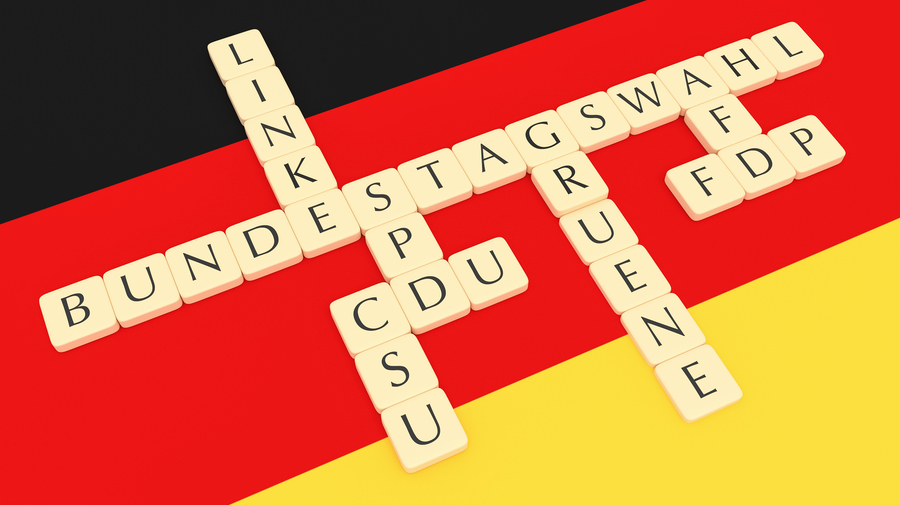When we first convened in the summer to talk about our soon-to-be German election project, it wasn’t clear there was a need for such an undertaking.
Much had been written about the effects of spreading unreliable and inaccurate information on previous votes, in particular the US presidential election and the Brexit referendum. First Draft’s involvement in election projects — Electionland in the US, Crosscheck in France and our collaboration with Full Fact in the UK — had also provided a reservoir of experience. The consensus among our partners for the upcoming effort, however, was that Germany was going to be different.
German media, we were told, were unlikely to be overcome with excitement, and publish salacious rumors or dramatic leaks without conscientiously checking provenance and accuracy. And the German public was equally unlikely to be unduly influenced by whatever did make it through.
The one wild card that came up in discussions was the 2015 hack of servers at the Bundestag (the German parliament), which resulted in the theft of massive amounts of confidential information. Two years on, and just months before Germans were to go to the polls, there was a surprising absence of leaks traceable to the attack.
Our partners speculated on two possible reasons for this:
- Maybe there was nothing worth leaking. Was it possible that the hackers had netted 16 gigabytes of humdrum emails detailing the daily ins and out of Germany’s legislature?
- Were the hackers and those behind them biding their time, waiting for the optimal moment to release information that would tip the balance of the election? This possibility was fueled by the emergence of a #BTLeaks (Bundestag Leaks) hashtag and associated social media accounts, which potentially presaged a sudden, late start to a coordinated campaign. Perhaps the hackers were learning from the perceived failure of #MacronLeaks to swing the vote in France, and were tailoring their tactics accordingly.
Those waiting for drama were to be disappointed. Bundestag Leaks never had any meaningful impact. Nor did any overwhelming social media campaign emerge to challenge Germany’s media, its electorate or our fact-checking and verification team at the Correctiv office in Berlin.
So, does this mean the project was a waste of time and resources? No more than avoiding falling off a bike means it was a waste of time to put on a helmet. We know that groups with varying motivations and levels of resources have been disseminating disinformation designed to sway public opinion, and being over-prepared rather than under-prepared seems like a prudent course of action.
Moreover, there were developments and lessons from accumulated experience. So what were the outstanding features of #WahlCheck17?
Firstly, in the “Information War”, the guns in this battle remained almost silent. Correctiv’s journalists, and the journalism students who joined the project, worked hard and did debunk information on a daily basis. This, of course, brought its own challenges.
To the forefront of these was the issue of what to focus on and report. When the raison d’être of your project is to ferret out and debunk disinformation, there is inevitably a feeling of satisfaction when you do so, and an urge to let it be known. If the effect, however, is to catapult a rumour from relative social media obscurity to mainstream media banner headlines about “sinister, shadowy propaganda networks”, this ends up being counterproductive.
“Strategic silence” — holding off on reporting lest you provide oxygen to something that may quickly wither and disappear if left well alone — is an increasingly important consideration. Early on, the #WahlCheck17 team made a decision to lean very heavily on available tools (see below) to identify what was gaining traction, and whether it was worth devoting resources to.
It should be pointed out, at the same time, that just because something is not trending openly does not mean it isn’t having an effect. The careful, almost silent targeting of highly specific demographics through means such as Facebook’s “dark posts” has been widely reported. In the context of #WahlCheck17, a less-sophisticated but still-significant version of this was at work. The team found many of the memes and rumors in Facebook groups for specific regions and localities. The prolific nature of these posts, and the fact that they were not being widely shared outside of those communities, presented challenges in terms of tracking and debunking, and led to speculation among the team as to whether it might be an emerging, deliberate tactic.
In the end, the team did succeed in debunking enough stories to justify a daily email to media partners in the three-week run-up to the vote. With most of these rumors and hoaxes, however, the likes and shares across platforms generally ran into the hundreds, rather than in the tens of thousands. This clearly does not amount to a major offensive in a developed country with a population of more than 80 million—and for an election that was widely accepted as having global significance.
#WahlCheck17’s success may well lie in the long term. The lack of any significant disinformation effort means the group of journalists and students had the luxury of learning and practicing new skills and familiarising themselves with useful platforms in a low-leverage environment. Germany did not have its “Information War” this time around, but it would be careless to assume it will stay this way forever. What we ended up with is a corps of newly minted verification specialists who will be able to make use of, and pass on, what they have learned.
Google News Lab and the Facebook Journalism Project supported First Draft to work with Correctiv and other major newsrooms to address rumours and misinformation spreading online during the German election. Additional journalists were recruited from the Hamburg Media School.
Tools used:



